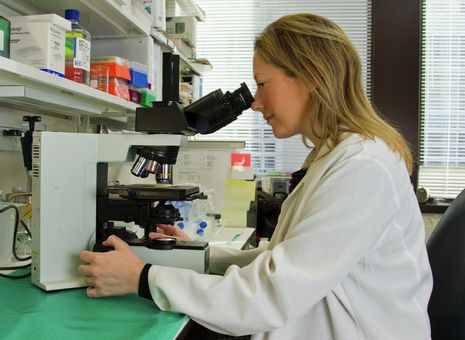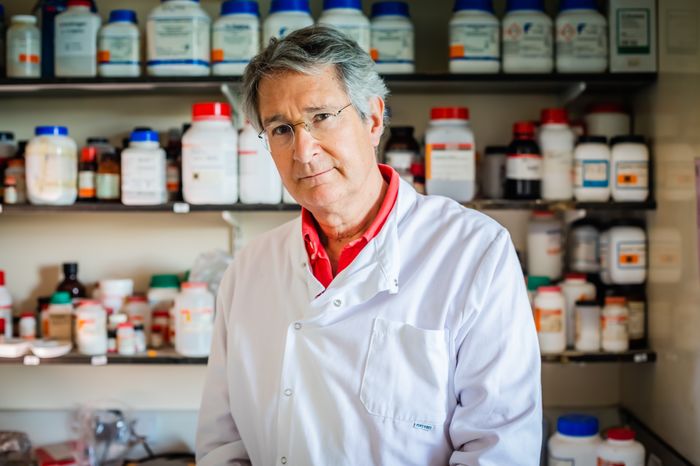Cambridge to receive government grant to develop ‘future proof’ Covid vaccine
Boris Johnson announced on Tuesday (8/3) that DIOSynVax, a spinout company of the University, would receive the $42 million grant

A University spinout company will receive $42 million to develop a “future proof” vaccine against both existing and future Covid variants.
The government grant - equivalent to roughly £32 million - will support the development of an mRNA vaccine in the continued fight against a range of coronaviruses.
If its new antigen design is successful, it could potentially enable the rapid development of vaccines against any unknown pathogens with pandemic potential that have yet to emerge.
The spinout biotech company DIOSynVax is led by Darwin College Professor Jonathan Heeney, Head of the Laboratory of Viral Zoonotics at the University.
He said: “Our approach is to be ahead of the next pandemic - to deliver custom designed, immune selected vaccine antigens - which is ideal to prevent diseases caused by complex viruses such as the large and diverse family of coronaviruses.”
He added that if the project was successful, it would result in a “safe” and “affordable” vaccine suitable for “widespread use.”
The company’s new vaccine candidate against SARS-CoV-2 (the virus that causes COVID-19) is already in clinical trials.
The news was announced by Boris Johnson on Tuesday (8/3), during the ongoing summit for Global Pandemic Preparedness in Oslo - which brings government leaders, scientists and academics together to discuss how to prepare for future viral threats.
The investment came from the Coalition for Epidemic Preparedness Innovations (CEPI). In a press release, the company stated their commitment to enabling fair access to the vaccines developed through their partnership with DIOSynVax.
CEO of CEPI, Dr Richard Hatchett, said: “I am excited to further strengthen CEPI’s strong ties to British science through this partnership with DIOSynVax, Cambridge, to develop a vaccine with the potential to protect against variants of SARS-CoV-2 and other Betacoronaviruses in the future.
“Coronaviruses have now proven their pandemic potential, so it’s imperative for global health security that we invest in R&D now to future-proof the world against the threat of coronaviruses.”
Professor Heeney said that he was “excited” to work with CEPI on its aims to use “revolutionary science and technology to outmanoeuvre and minimise future pandemic threats.”
DIOSynVax was set up in 2017 with the support of Cambridge Enterprise, the University’s commercialisation arm.
 News / Colleges charge different rents for the same Castle Street accommodation2 March 2026
News / Colleges charge different rents for the same Castle Street accommodation2 March 2026 News / News in Brief: waterworks, wine woes, and workplace wins 1 March 2026
News / News in Brief: waterworks, wine woes, and workplace wins 1 March 2026 News / Angela Merkel among Cambridge honorary degree nominees27 February 2026
News / Angela Merkel among Cambridge honorary degree nominees27 February 2026 News / Climate activists protest for ‘ethical careers policy’1 March 2026
News / Climate activists protest for ‘ethical careers policy’1 March 2026 News / King’s hosts open iftar for Ramadan3 March 2026
News / King’s hosts open iftar for Ramadan3 March 2026










